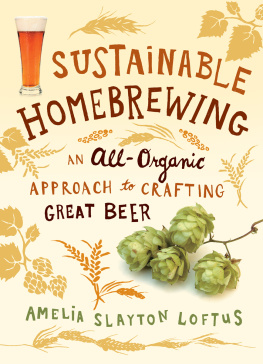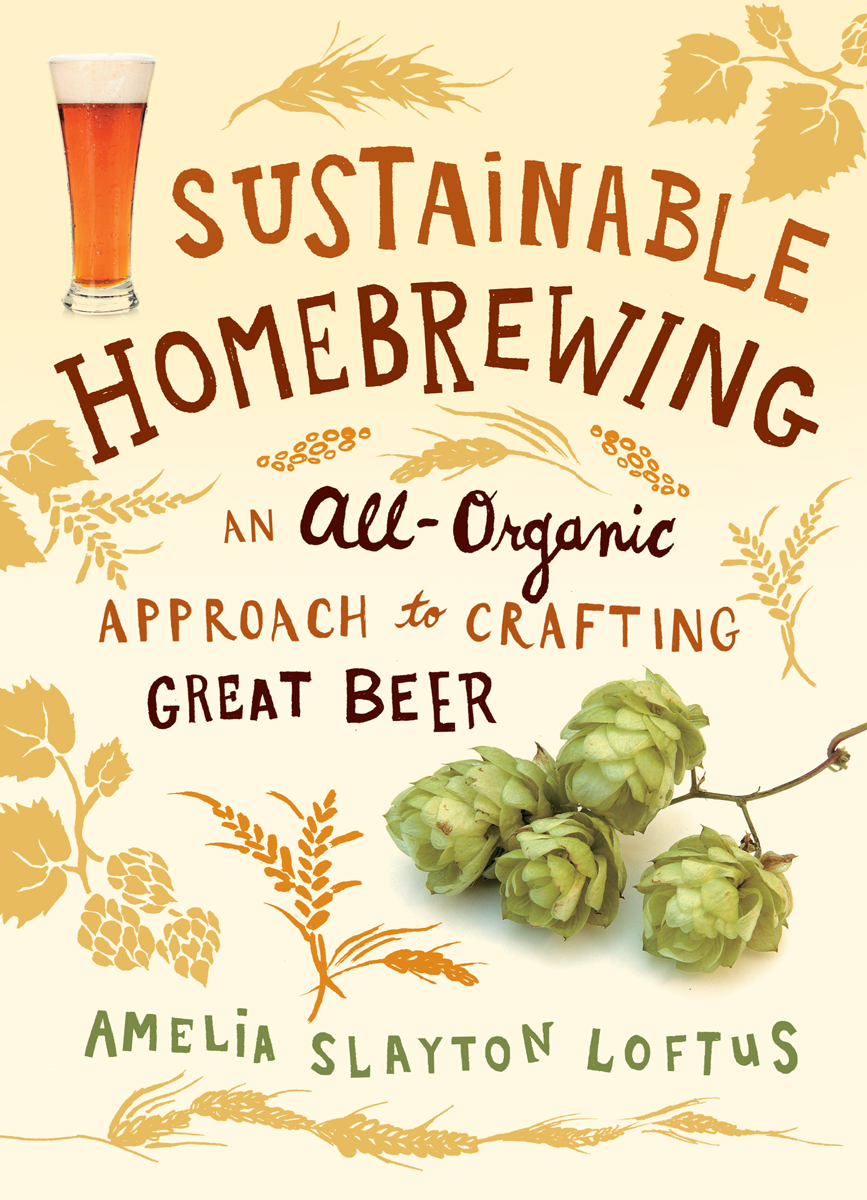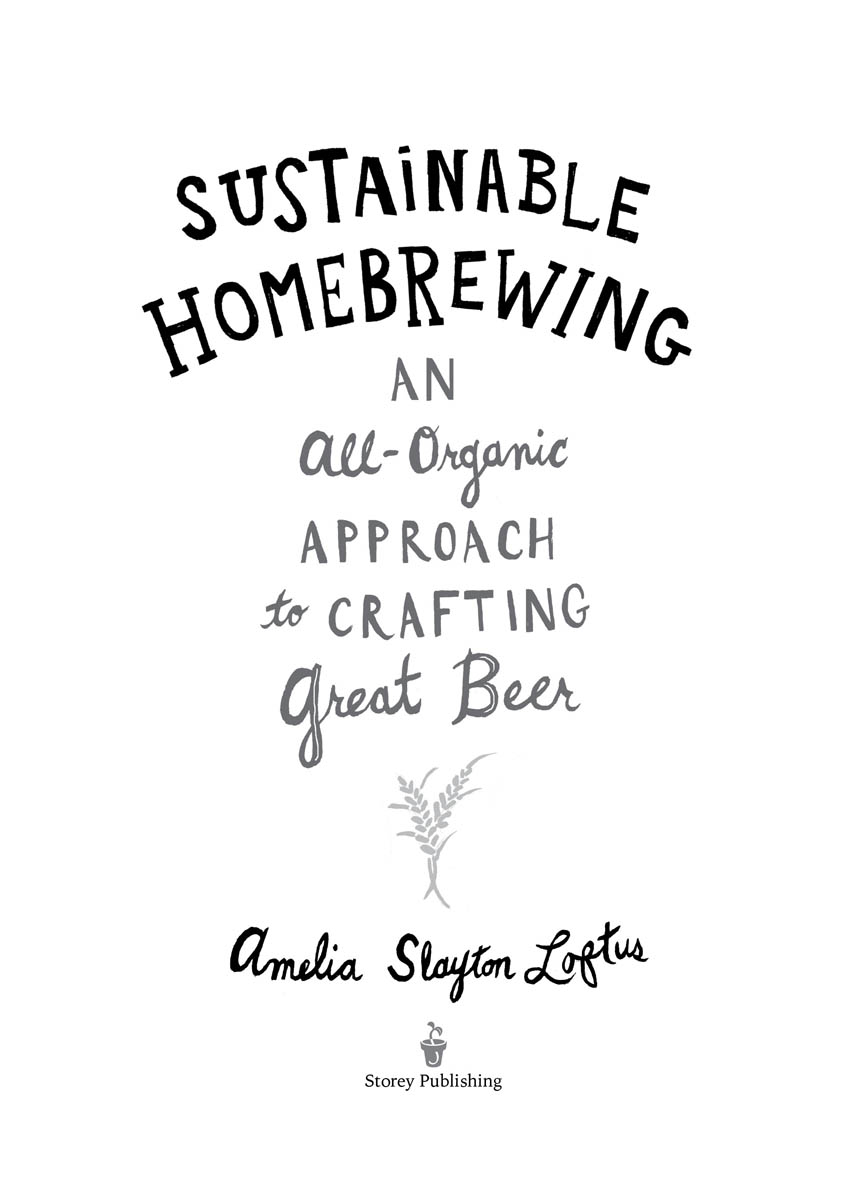Dedication
This book is dedicated to everyone who ever inspired and/or encouraged me to brew, and indulged me in my single-minded need to make every homebrew as eco-friendly as possible!
And to my late father, Peter Slayton, who taught me the joys of tinkering and invested in me a steadfast belief in renewable energy, especially solar power.
Also to women beer makers everywhere who are rediscovering our ancient role as brewers, medicine women, and creators of wonderful tasty things. And to the organic farmers who are growing wonderful, high-quality organic hops and brewing grains. Your products are proof that you do not need to rely on chemicals to make great beer! And the organic breweries who are putting great, high-quality organic craft beers out there for everyone who cannot brew their own to enjoy.
Last but not least, to my husband, Patrick, who had to live with my crazy writing schedule for the two years that I worked on this book!
Acknowledgments
This book would never have come about without the people who inspired me to pursue sustainable brewing for the past 19 years:
Charlie Papazian for his book The Joy of Homebrewing. It gave me the passion to brew that has sustained me for all these years! Also the authors of many other great brewing guides, especially John Palmer (How to Brew), Ray Daniels (Designing Great Beers), Sandor Katz (The Art of Fermentation), and Stephen Harrod Buhner (Sacred and Herbal Healing Beers).
Friends I have brewed with and shared homebrews with through the years, especially Ben P., Dan S., John G., and everyone at Sparge. The founding members of Seven Bridges Cooperative, who believed in the sustainable brewing dream enough to launch an organic homebrew business and invest in it for over 15 years. And finally, the friends, acquaintances, and heroes in the environmental movement who have instilled in me a great reverence for the earth that sustains us.

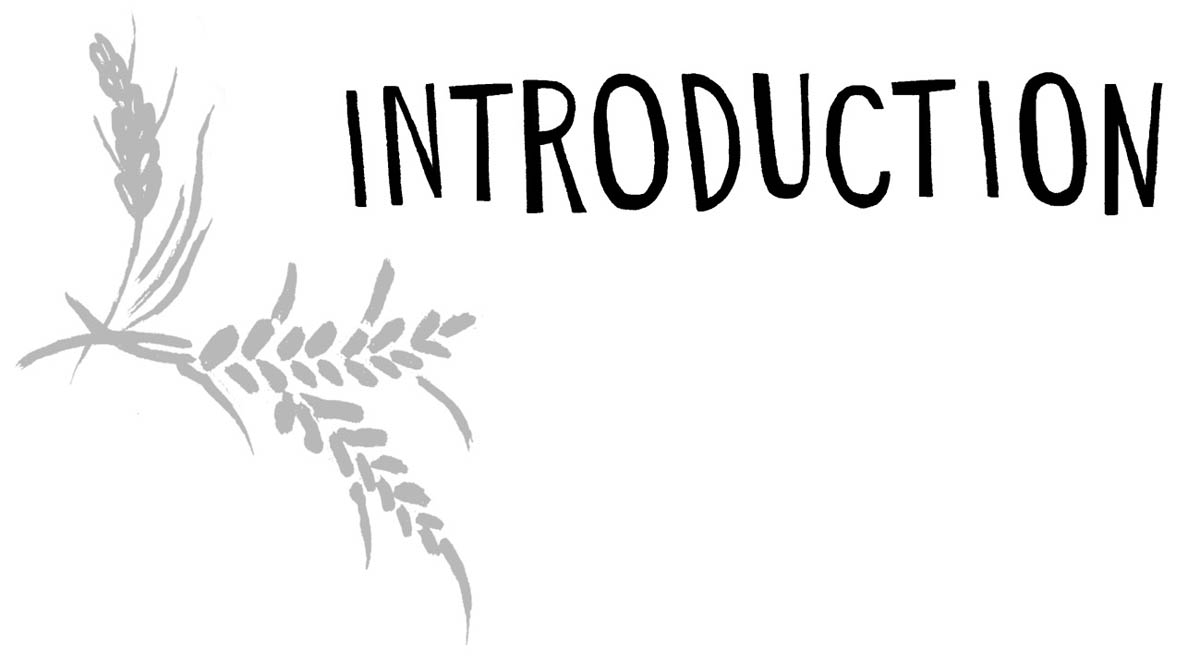
To me, being a good brewer means not only making excellent, even award-winning, beer, but also being conscious of the impact your activity has on the environment and incorporating sustainable practices into your brew routine. Sustainable brewing means choosing ingredients and supplies that have a lower impact on the environment, using equipment that is made from durable, nontoxic materials, and employing brewing practices that use as little energy and water as possible. It involves reusing and recycling spent brewing grain, cooling water, and beer bottles or kegs. Just as importantly, sustainable brewing means making great beer, which is the most efficient and sustainable use of ingredients possible because it will never be wasted! Not to mention that always having fresh organic beer on hand greatly enhances your quality of life.
Today, organic beer is no longer a novel idea. But 20 years ago, just a small handful of organic beers were available to North American beer drinkers, and many of those were imports. Some of the first to hit the scene were from Caledonia Brewing in Scotland (Golden Promise, Organic Lager, Organic Premium Ale), Samuel Smiths in Great Britain (Organic Lager, Organic Best Ale), and Pinkus Mller in Germany (Original, Pinkus Spezial, Hefeweizen). These imports encouraged a handful of American brewers to take the plunge and in the late 90s, beers began to appear from Wolavers (Brown Ale, Pale Ale, and IPA), Butte Creek (Organic Ale, Organic Porter, and IPA), Eel River Brewing (Organic Amber Ale) all located in California as well as Fish Brewing in Washington (Amber Ale, River Run, and IPA) and Lakefront Brewery in Wisconsin (ESB).
Since then, the number of organic beers on the market has exploded. Nowadays, almost every grocery or liquor store with a decent selection of beer and wine has several organic offerings. Small organic breweries continue to pop up all over North America. Portlands Organic Beer Festival, established in 2003, attracts thousands of attendees every year.
All this commercial organic brewing activity has greatly benefited aspiring organic homebrewers: the demand has dramatically improved the selection and quality of organic ingredients, and the price gap between organic and nonorganic ingredients has dropped significantly. Choosing organic ingredients over conventionally grown ones is arguably one of the most important steps a brewer can take towards being truly sustainable.
There are so many great reasons to brew organic, but these are my top three:
- It supports organic agriculture and small-scale farming. Most people agree that the top reason to choose organic anything, beer included, is to support organic agriculture because it is better for the environment. Organic farms in North America tend to be smaller and more community based than conventional operations. They give back to their communities in the form of fresh, healthy food, local jobs, and better stewardship of the local ecology.
- Beer is food. If you eat organic food whenever possible, you should also drink organic beer whenever possible. Moderate consumption of beer, one or two beers a day, has been discovered to offer health benefits, including lowering the risk of cardiovascular disease. Drink organic beer, and you will have even less to worry about!
- Its cheaper in the long run. Some organic ingredients cost more (in some cases a lot more), but brewing your own organic beer is still cheaper than buying it. You can reduce costs by buying in bulk and building your own recipes, brewing from scratch with whole grains instead of extract, and seeking out local sources for heavy base ingredients such as barley malt and malt extract. Then you can order by mail only the ingredients you cannot buy (or grow) locally. If you are willing to be creative about substituting ingredients, you can use more locally grown counterparts and still create beers that are true to the style intended.

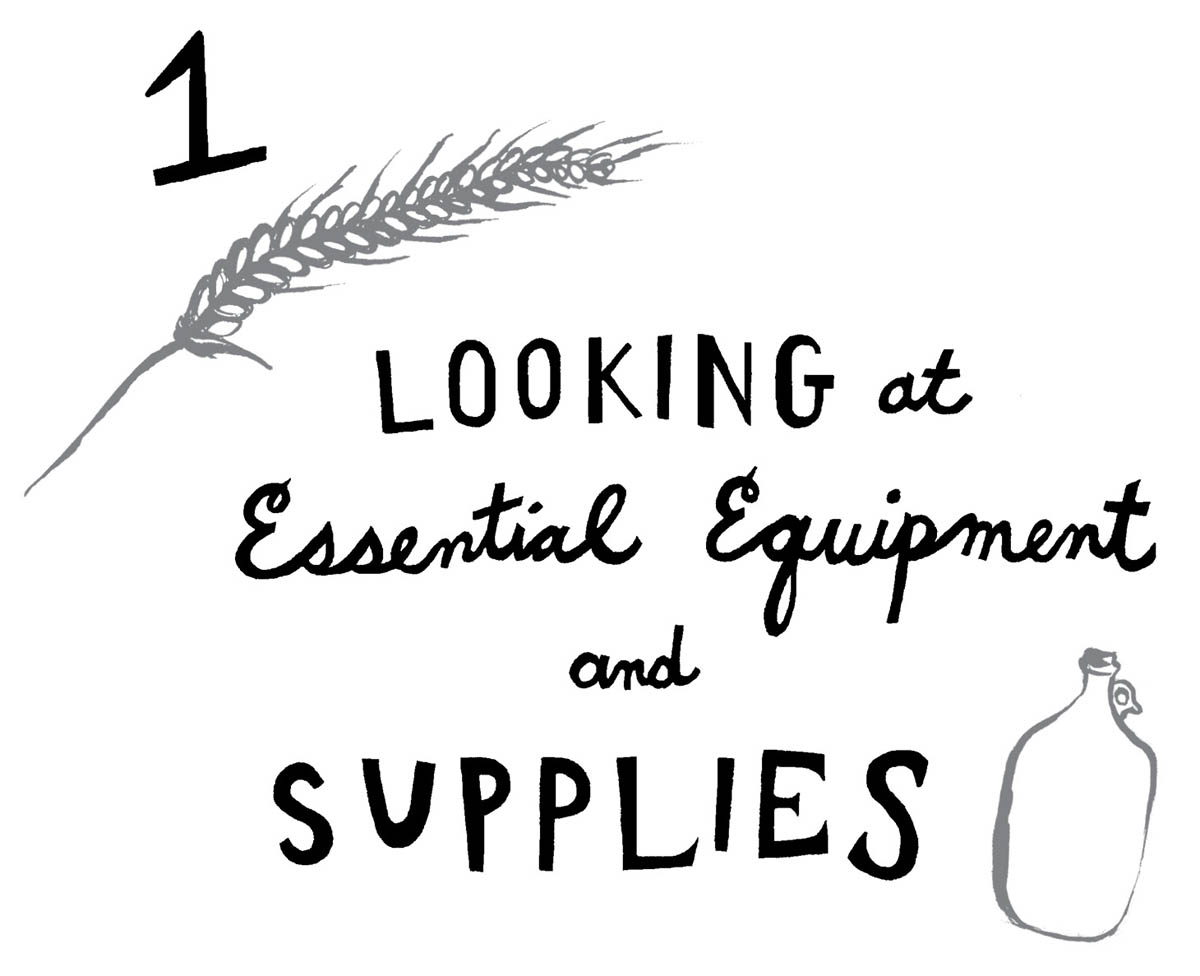
Being a sustainability-minded homebrewer means keeping your brewery as efficient, environmentally sound, and worker friendly as possible. When it comes to buying equipment and supplies, there are many factors to consider. What are the costs to the environment, human health, and human rights for the materials you are about to purchase?
It is kind of hard to feel like a truly sustainable brewer if you know that the factory that makes your plastic bucket fermenter dumps toxins into local water supplies, contributing to serious health problems for nearby residents. Your amazing homebrewed beer will taste even better if you can sip with confidence, knowing a 10-year-old kid did not have to work a 10-hour day in a factory so the manufacturer could keep the cost of your brewing gizmo low while turning a tidy profit.

